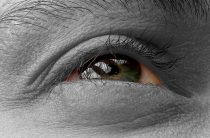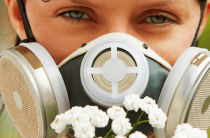Alcohol allergy is a general name for a group of disorders caused by the susceptibility of the patient's immune system to the components of alcoholic beverages. Alcohol itself, which is an indispensable component of alcoholic products, is nothing more than a poison for the body. But in people with appropriate sensitivity, in addition to a general disruption of normal functioning, it can also excite allergic manifestations.
The reaction that is formed when alcohol enters the body is far from uncommon. Many people experience itching, redness, and flaking of the skin on the face after drinking alcohol. Often, this is mistakenly attributed to the actual alcohol influence, without realizing that they are allergic.
Causes of allergies after drinking alcohol?
Alcohol and water are far from all the substances that are present in alcoholic beverages. Many cases of the appearance of symptoms of such a disorder as an allergy to alcohol are not at all related to ethyl alcohol. Often the patient can observe the onset of symptoms of the disease after drinking a certain type of alcohol. This means that the reaction develops on the accompanying components used in the alcohol industry. Factory-made alcoholic beverages are especially rich in allergenic components. They contain a considerable amount of various synthetic impurities used to give a certain taste and color to the product. Of the natural products, the cause of the disease is most often red wine (one of the most allergenic drinks).
Basically, the cause of the formation of an allergy to alcoholic beverages is the long-term use of low-quality beverages, which contain artificial substances in considerable quantities. They are used to reduce the cost of production. Alas, manufacturers do not know or simply ignore the fact that the body of many people reacts very sharply to the intake of these substances.
An allergy to alcohol can also occur in the case of a hereditary tendency. In this case, people whose close relatives suffer from allergic ailments have the greatest risk. At the same time, the nature of the disease itself is not important, it can be an allergy to plant pollen or food. In this case, the patient receives a hereditary tendency to develop allergic reactions. Another reason for an acute reaction to even a small amount of alcohol can be a lack of an enzyme that breaks down alcohol into its simplest components. In this case, the patient observes the symptoms of the disorder even after ingesting a small amount of alcohol.
Alcohol allergy symptoms
During the first episodes, the manifestations of this disease are detected with little intensity. Often, the first thing the patient notices is the appearance of a rash on the face and neck. But in the future, if there is frequent contact with the allergen, the disease progresses. At this stage, in addition to increasing skin symptoms, manifestations of gastrointestinal disorders are also added.
The symptoms of alcohol allergy are represented by the following disorders:
- 30-40 minutes after taking alcoholic beverages, the skin on the face and hands becomes red, caused by the expansion of capillaries;
- Rash localized in the abdomen, chest, neck and face. The skin at the sites of skin reactions becomes dry and flaky, urticaria (red, barely raised blisters) may appear;
- Rapid heartbeat, increased blood pressure and a sharp increase in blood flow in the head. As a result, the patient often suffers from migraine attacks;
- Gastrointestinal manifestations: the patient feels sick, pain is observed and vomiting is noted. With an allergy to ethyl alcohol, these symptoms do not occur as a result of alcohol poisoning, but due to the activity of allergens that irritate the intestinal mucosa;
- Body temperature rises, as with a cold;
- Manifestations of swelling in the face, itching on the skin;
- redness of the eyes, tearing, nasal congestion and runny nose;
What is the difference between alcohol allergy and alcohol poisoning?
As we can see, many of the symptoms of the disease are similar to signs of alcohol intoxication. Especially, it concerns such manifestations as nausea, vomiting and headache. The difference lies mainly in the fact that alcohol allergy and its symptoms are not associated with the poisoning effect of alcohol or other products, but with their irritating effect on the patient's immune system. Symptoms such as skin rash, redness of the eyes, runny nose are a clear indication that the disease has an allergic nature.
Another sign of alcohol poisoning, which makes it possible to distinguish it from the symptoms of allergic disorders, is the amount of the substance ingested. An allergy to alcohol can be detected even with a minimum dosage of a drink that is not even capable of causing intoxication. While for intoxication with ethyl alcohol and its consequences, a significant dosage is required. The reaction to alcohol can occur not only when it gets inside. The patient can observe local signs of a reaction on the skin when an alcohol solution gets on its surface. The skin at the contact points becomes covered with a rash, inflammation forms, itching and other signs of an allergic reaction are noted.
It is very difficult to distinguish the symptoms of an allergy to alcohol or other components from a food intolerance for those who drink only on holidays. And this is not surprising on the festive table there are many dishes from those that we do not eat in everyday life, and some even try for the first time. Well, that's why it's a holiday. But it is quite possible that it is not alcohol-containing drinks that are to blame for the appearance of signs of an allergic reaction, but those products of the festive table to which our body turned out to be unusual.
In order to make a diagnosis of alcohol allergy, special diagnostic procedures are used, which include general and special blood tests, as well as skin and provocative tests. Only after carrying out comprehensive comprehensive diagnostic measures can we talk about the allergic nature of the disease, as well as about what caused it.















